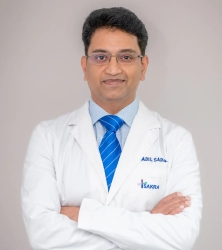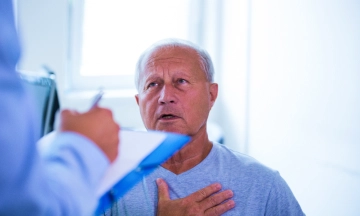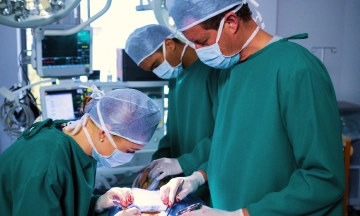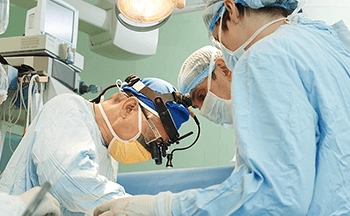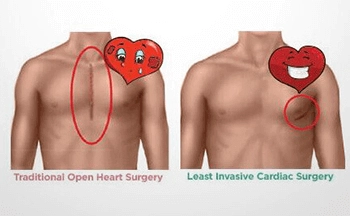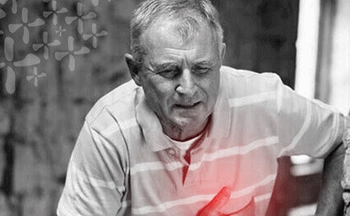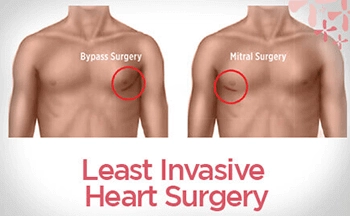
Undergoing heart surgery is a significant event that often requires a comprehensive approach to recovery. Medications play a crucial role in this process, aiding in healing, preventing complications, and managing existing health conditions. While the idea of stopping medication might seem appealing, it's essential to understand the importance of following medical advice and dispel any misconceptions about discontinuing medication after heart surgery.
The Role of Medication in Heart Surgery Recovery
Heart surgery, whether it's a coronary artery bypass graft (CABG), heart valve repair or replacement, or any other procedure, is a complex process that puts stress on the cardiovascular system. Medications prescribed after heart surgery recovery are designed to fulfill various roles:
- Pain Management: Immediately after surgery, pain management is vital for comfort and early mobilization. Medications like opioids and non-steroidal anti-inflammatory drugs (NSAIDs) are often prescribed to control pain and reduce inflammation.
- Prevention of Complications: Blood thinners-anticoagulants and antiplatelet medications are commonly prescribed to prevent blood clots, which can lead to serious complications such as stroke, graft thrombosis, or a stuck-valve.
- Cardiac Rehabilitation: Medications like beta-blockers and ACE inhibitors help reduce strain on the heart, lower blood pressure, and support the heart's healing process during cardiac rehabilitation.
- Control of Underlying Conditions: Many individuals undergoing heart surgery have pre-existing conditions like hypertension or diabetes. Medications for these conditions are essential to manage them effectively and prevent further strain on the heart.
Myths About Stopping Medication
Despite the critical role of post-operative medication, there are several myths and misconceptions that might lead individuals to consider stopping their medication prematurely. Let's debunk some of these myths:
- Myth: I Feel Fine, So I Can Stop Taking Medication: Feeling better shortly after surgery doesn't necessarily mean you're fully healed internally. Medications are often prescribed to prevent potential issues that might not present immediate symptoms.
- Myth: Medications Are Only Necessary in the Short Term: While some medications might be gradually tapered off, others are meant for long-term use. Blood pressure management, for instance, is crucial for preventing strain on the heart and reducing the risk of future cardiac events.
- Myth: Natural Remedies Can Replace Medications: While certain lifestyle changes can complement medication, they can't entirely replace the specific actions of prescribed drugs. Consult your healthcare provider before making any changes to your medication regimen.
- Myth: Stopping Medication Will Speed Up Recovery: Recovery after heart surgery is a gradual process that involves various factors. Stopping medication prematurely can lead to complications and hinder your overall recovery progress.
The Dangers of Discontinuing Medication
Stopping medication without medical supervision can have severe consequences, particularly after heart surgery. Some potential risks include:
- Increased Risk of Blood Clots: Discontinuing blood thinners or antiplatelet medications can lead to an increased risk of blood clots forming, which can result in life-threatening conditions like strokes or pulmonary embolisms, or even lead to clots in the newly established bypass grafts. People on anticoagulants after valve replacements have an even higher risk, as stopping anticoagulation can lead to blockage of the heart valve by blood clots, which can be fatal.
- Worsening of Underlying Conditions: If you had pre-existing conditions like hypertension or diabetes, stopping medications can lead to uncontrolled blood pressure or blood sugar levels, placing additional strain on the heart and the healing process
- Impaired Healing: Medications prescribed after surgery support the body's healing process by reducing inflammation, managing pain, and preventing complications. Stopping these medications could impede the healing process and extend recovery time.
- Risk of Cardiac Events: Medications that help the heart function efficiently and reduce its workload (such as beta-blockers) are vital for preventing future cardiac events. Discontinuing them could increase the risk of heart attacks or heart failure.
Achieving the best outcomes after Heart Surgery
- Consulting Your Healthcare Provider: The decision to stop or modify any medication regimen, especially after heart surgery, should only be made in consultation with your healthcare provider. Here's what you should keep in mind:
- Open Communication: Maintain open and honest communication with your healthcare team about your concerns, preferences, and any side effects you might be experiencing.
- Follow Medical Advice: Your healthcare provider understands your medical history and the intricacies of your surgery. Their recommendations are based on your individual needs and should be followed diligently.
- Tapering Off Medication: In cases where medication can be gradually tapered off, your healthcare provider will provide a structured plan to ensure a smooth transition.
- Lifestyle Changes: While medications are essential, lifestyle changes also play a significant role in your recovery. Work with your healthcare provider to integrate exercise, a heart-healthy diet, and stress management into your routine.
Conclusion
In the aftermath of heart surgery, medication can be a lifeline to a successful recovery and improved long-term outcomes. The notion of stopping medication prematurely can lead to serious health risks and hinder your progress. It's essential to understand the role of each prescribed medication in heart valve or
bypass surgery in Bangalore, communicate openly with your healthcare provider, and follow their guidance closely. By dispelling the myths surrounding discontinuing medication after heart surgery, you can prioritize your health and pave the way for a smoother recovery journey at Sakra World Hospital.




